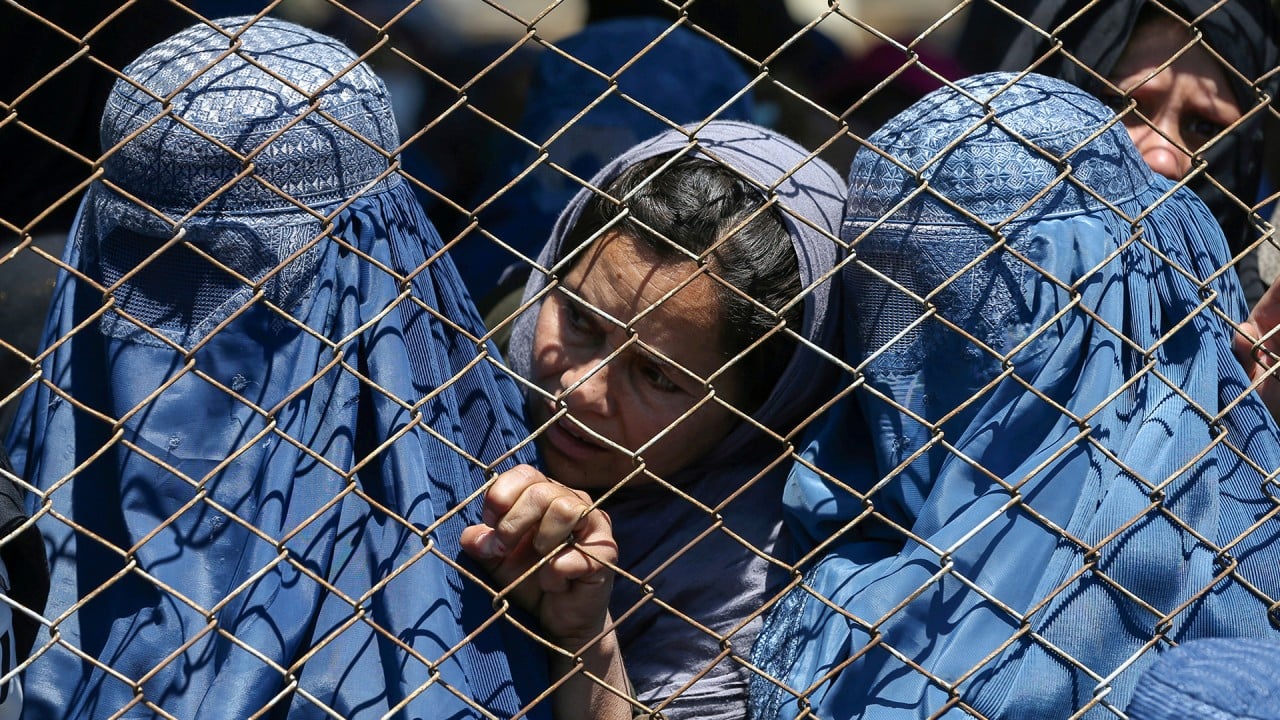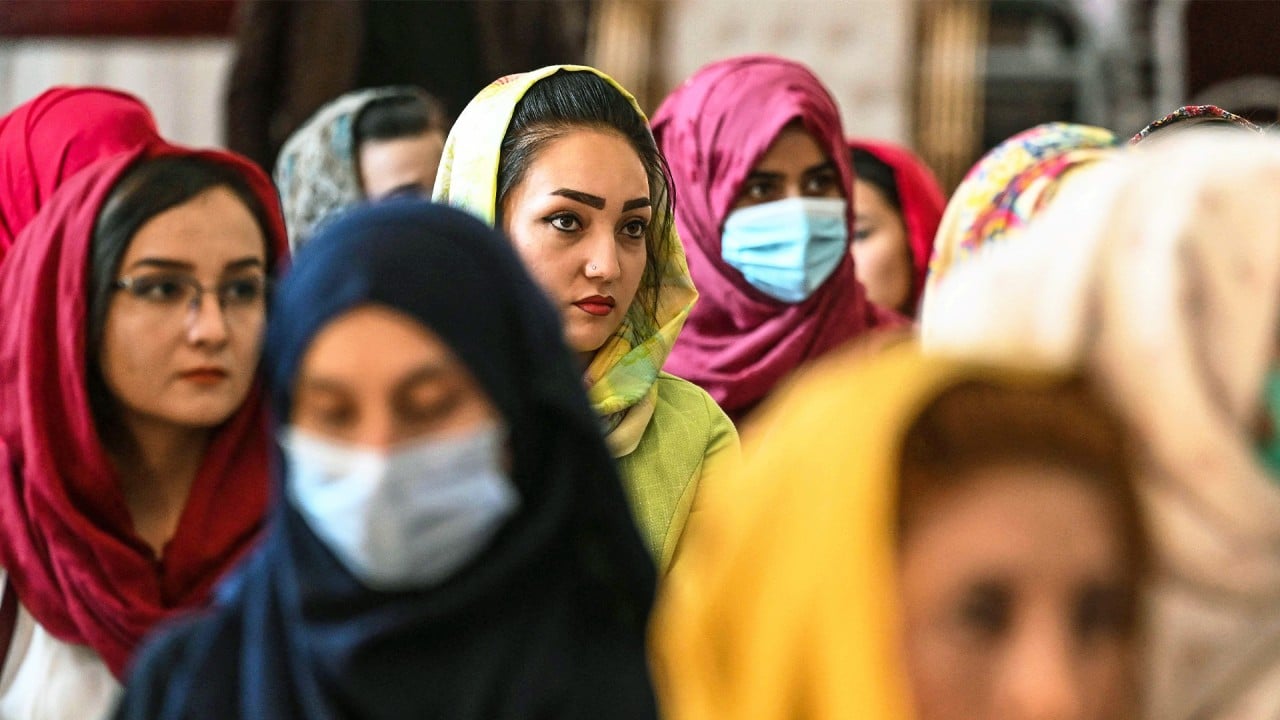
Taliban’s resurgence in Afghanistan bodes ill for women in Pakistan, too
- Widespread approval of the Taliban in Pakistan reflects the misogyny in both countries’ governance and politics
- The fear is that developments in Afghanistan will embolden extremist narratives in Pakistan and worsen the underlying gender inequalities
In Pakistan’s Faisalabad city, known for its textile industry, a march for women’s rights earlier this month was blocked after the assistant commissioner failed to provide the organisers with a “no objection certificate”.
The march’s organisers claimed that, during a meeting with the official, he told them “rape does not happen without consent these days” and that “women are not this oppressed in Pakistan”. In response, they registered their fury on social media.
Yet, at both official levels and in society, the conquest has been hailed in Pakistan, where the religion card is frequently used to camouflage incidents of gender-based violence.
News of the Taliban forcing out women employees from a bank in the southern city of Kandahar reinforces the group’s anti-women narrative. Unsurprisingly, there are major convergences in the patriarchal understanding of culture and religion between the Taliban regime and Pakistani society.
The widespread approval of the Taliban in Pakistan reflects the misogyny in the governance and politics of both countries. Many fear that these developments in Afghanistan will only embolden extremist narratives in Pakistan.
The ruling elite puts women at the centre of social and cultural sanctifications, from which it draws ways of responding to gender violence. Sexual violence acts as a tool for maintaining the patriarchal order.
The cause lies in how the female body is seen and defined – as a “cultural artefact” that forms the basis of the hierarchical power distribution. The idea reflects and reinforces the power imbalance between men and women.
This narrative of leaders blaming women for crimes against them is not new. And it’s apparent that the state is failing to protect women when, for example, the Domestic Violence (Prevention and Protection) Bill passed in parliament is then transferred to the Council of Islamic Ideology for review.
The review was sought by the adviser to the prime minister on parliamentary affairs. Importantly, the enacting of the law against domestic violence at the federal level continues to be delayed.
There is a dire need to examine why the question of religion arises most often in connection with legislation on women’s protection, safety and freedom, yet rarely surfaces when it comes to how the polity organises itself.
Pakistan’s women want sexual rights. Do its men feel threatened?
Indeed, the state becomes complicit in crimes against women when it fails to guarantee women’s rights as equal citizens and instead sympathises with the regimes known for their stance against women.
These underlying inequalities and power imbalances will only intensify and be reproduced in ultraconservative societies, including Pakistan.
It is the state’s duty to deal with gender issues by considering women as citizens, and not the subjects of family sanctity. No ideology should prevail at the cost of women’s lives. Indeed, by allowing this, the state becomes an accomplice in the killing of all those silenced in the name of honour or religion.
Saman Rizwan is an independent analyst based in Islamabad




